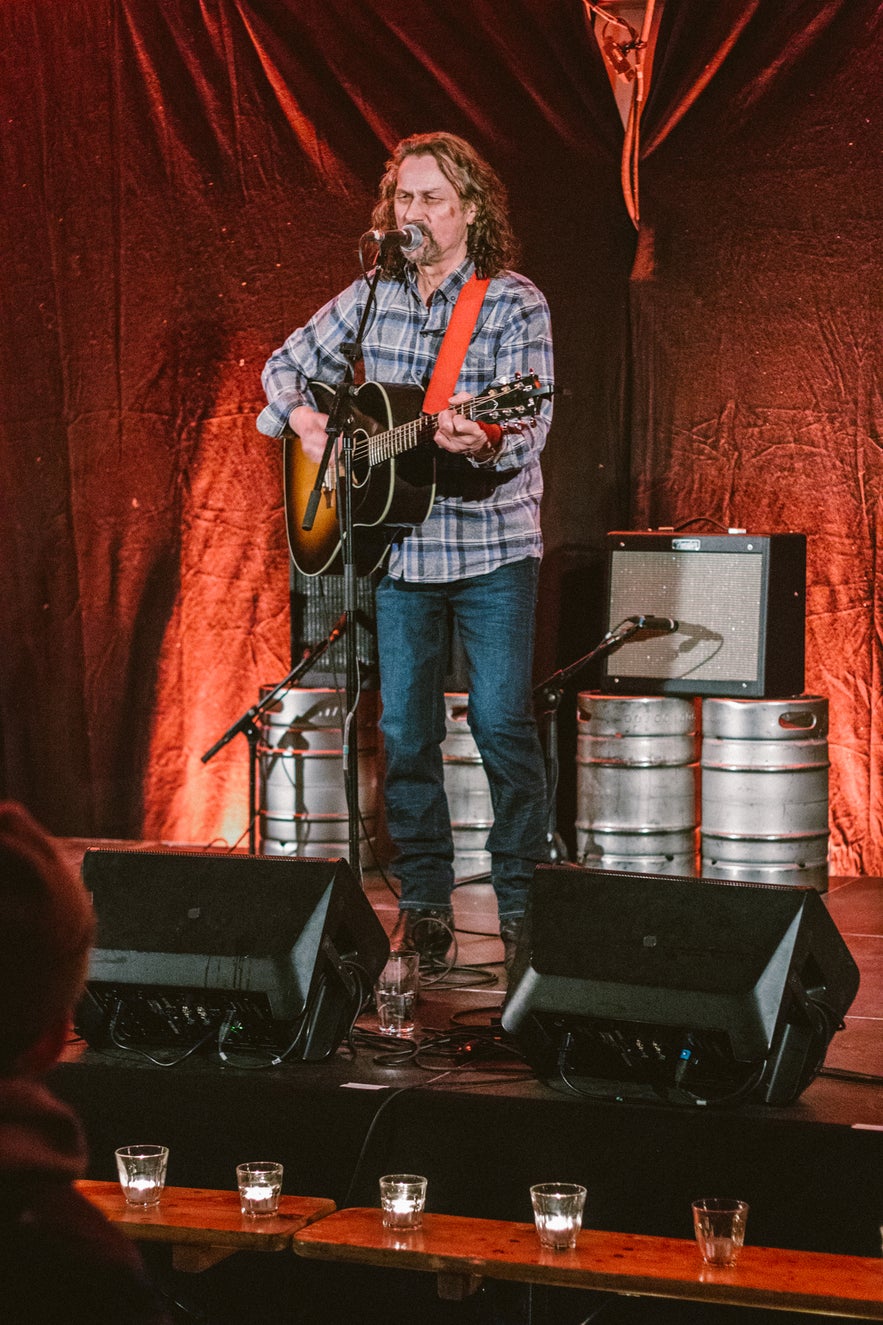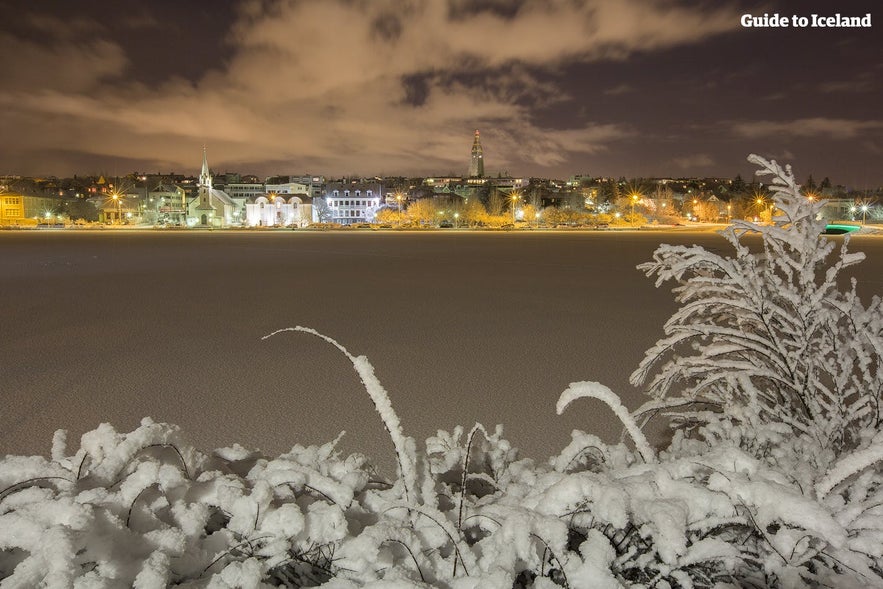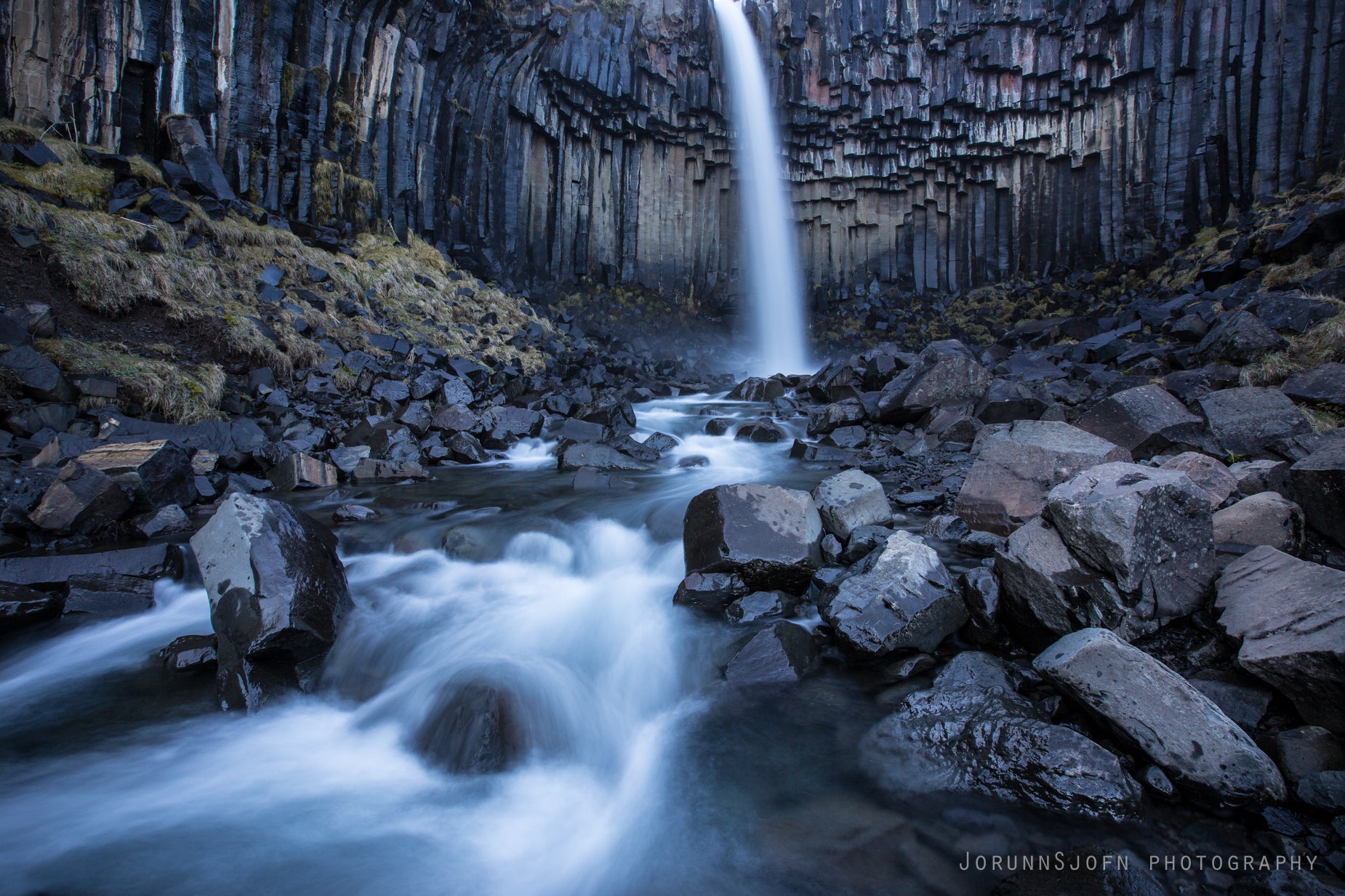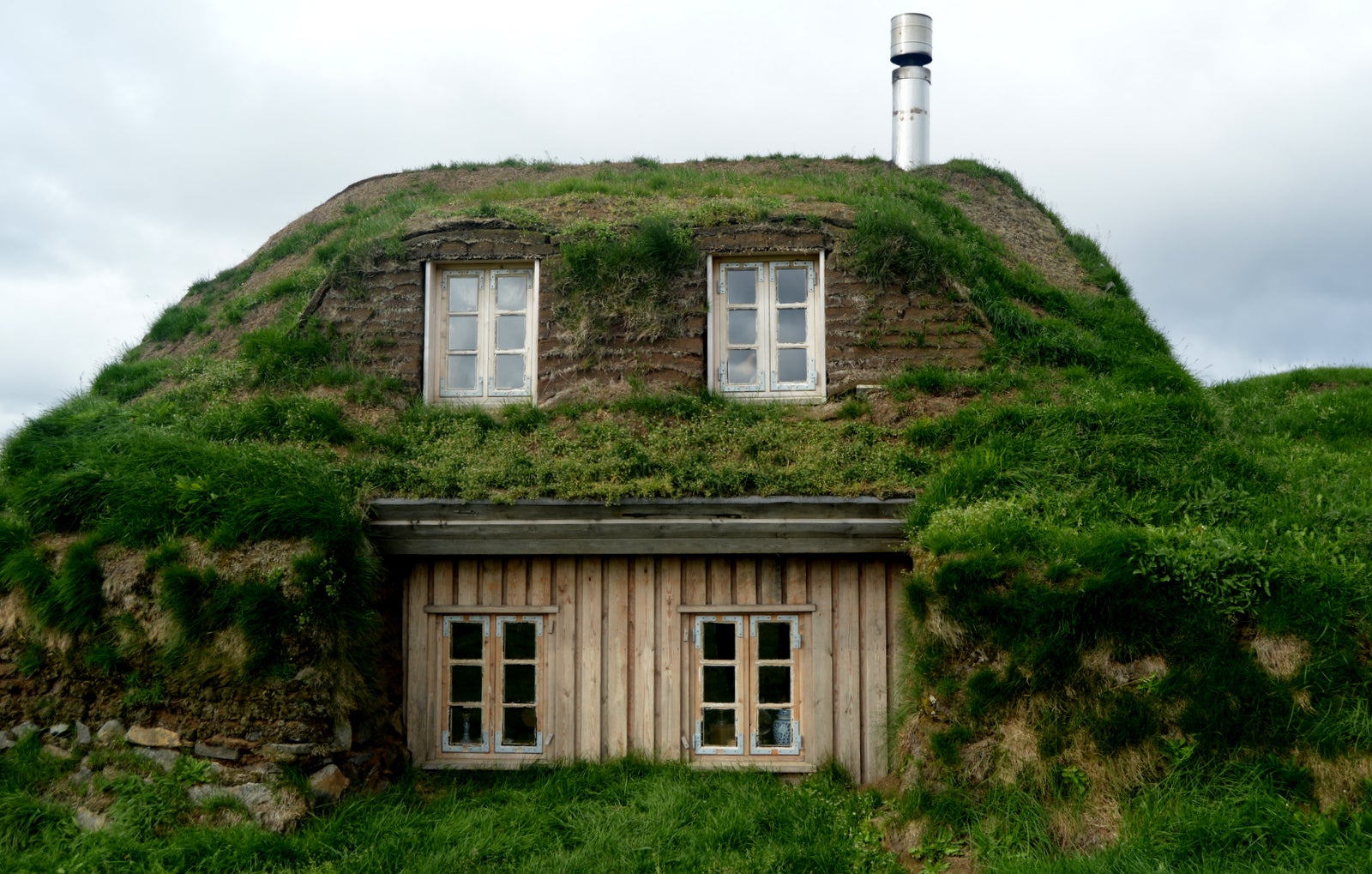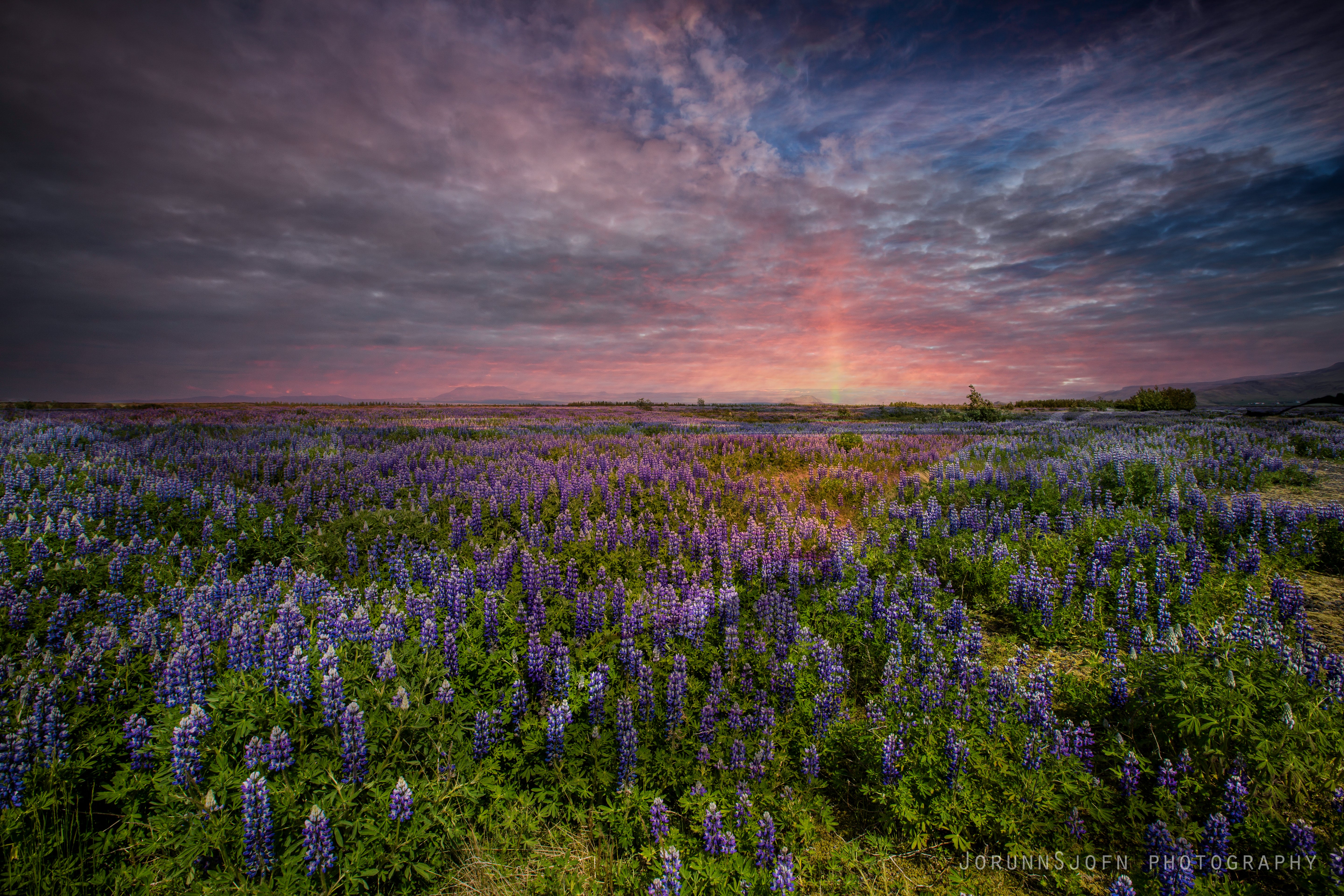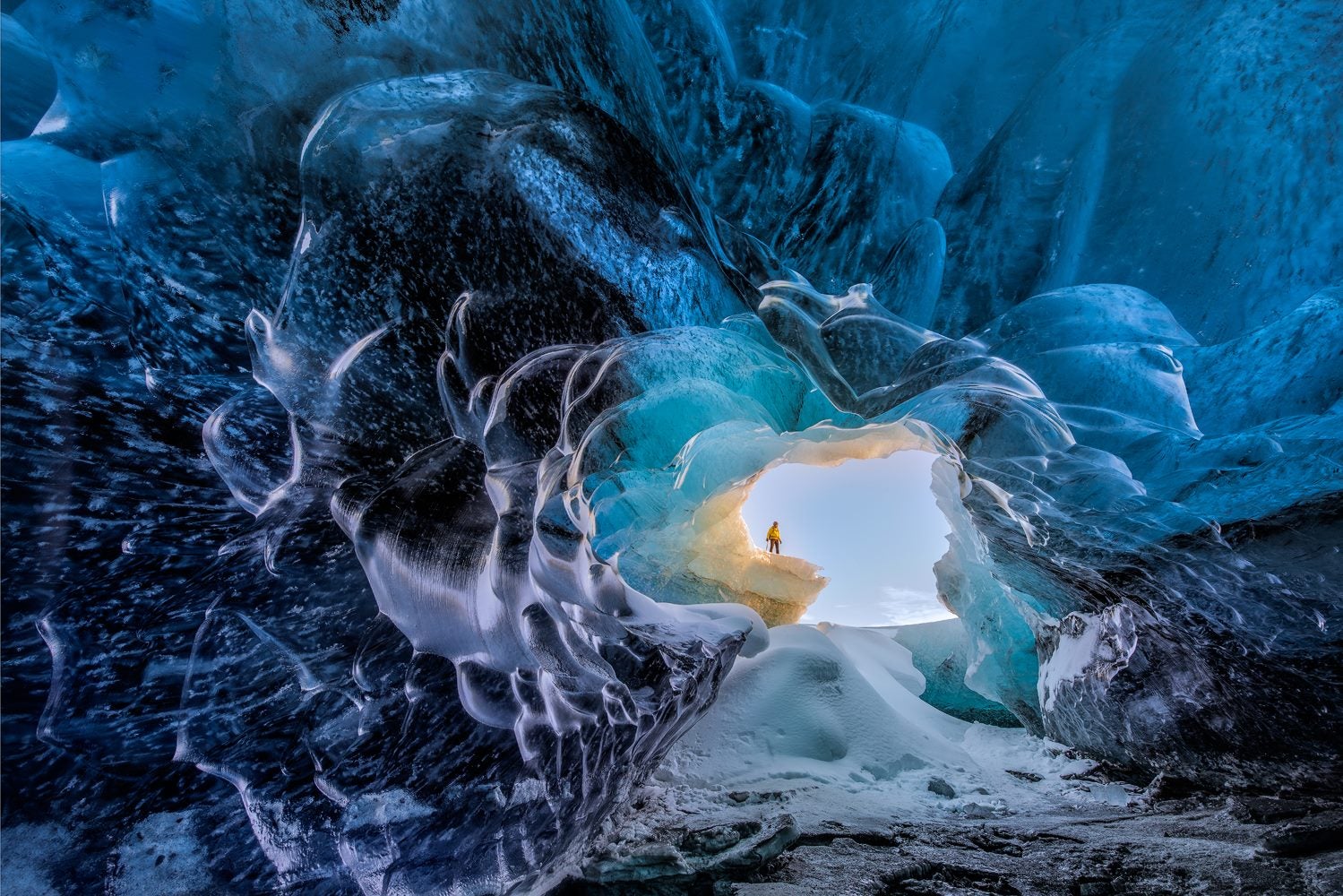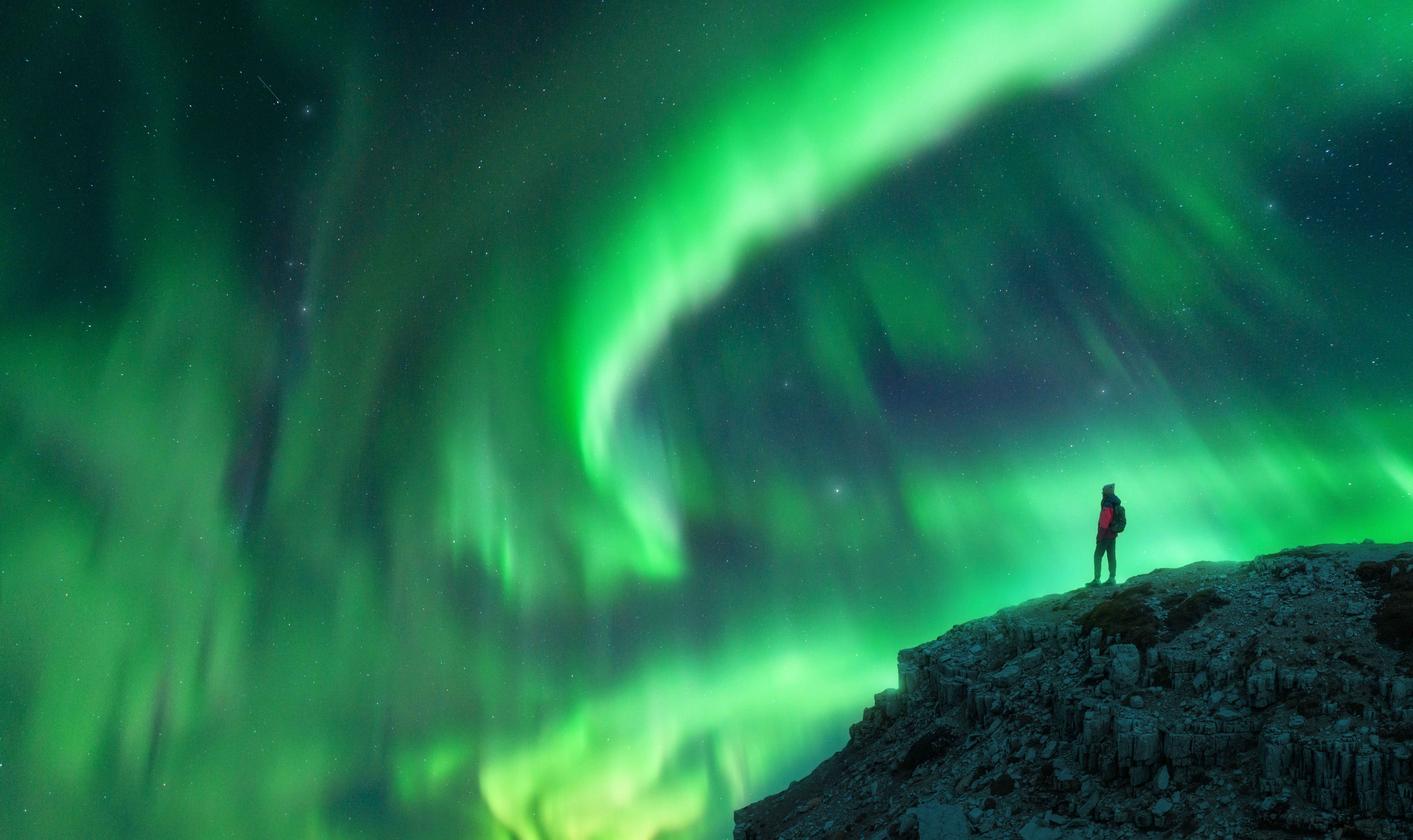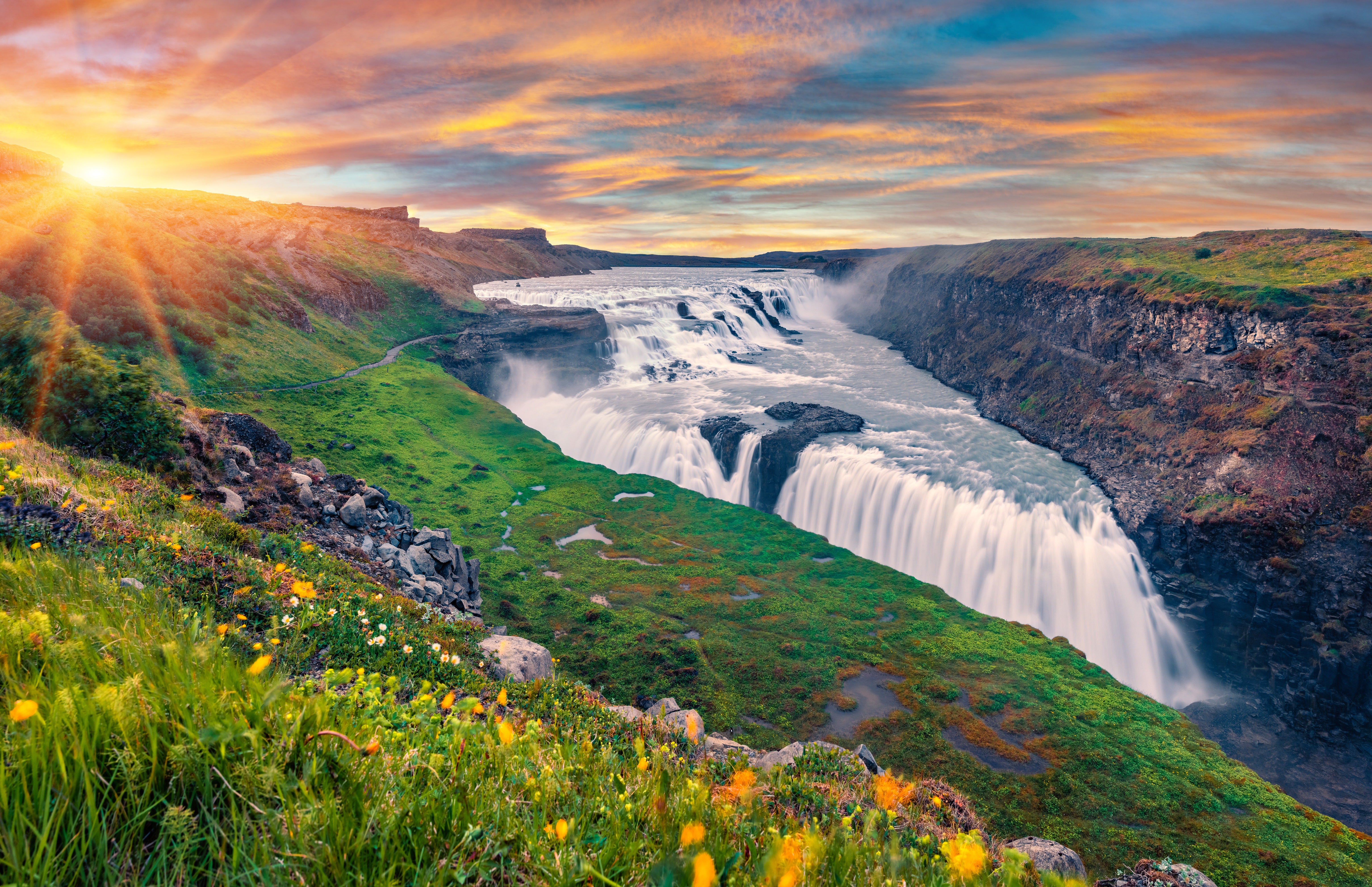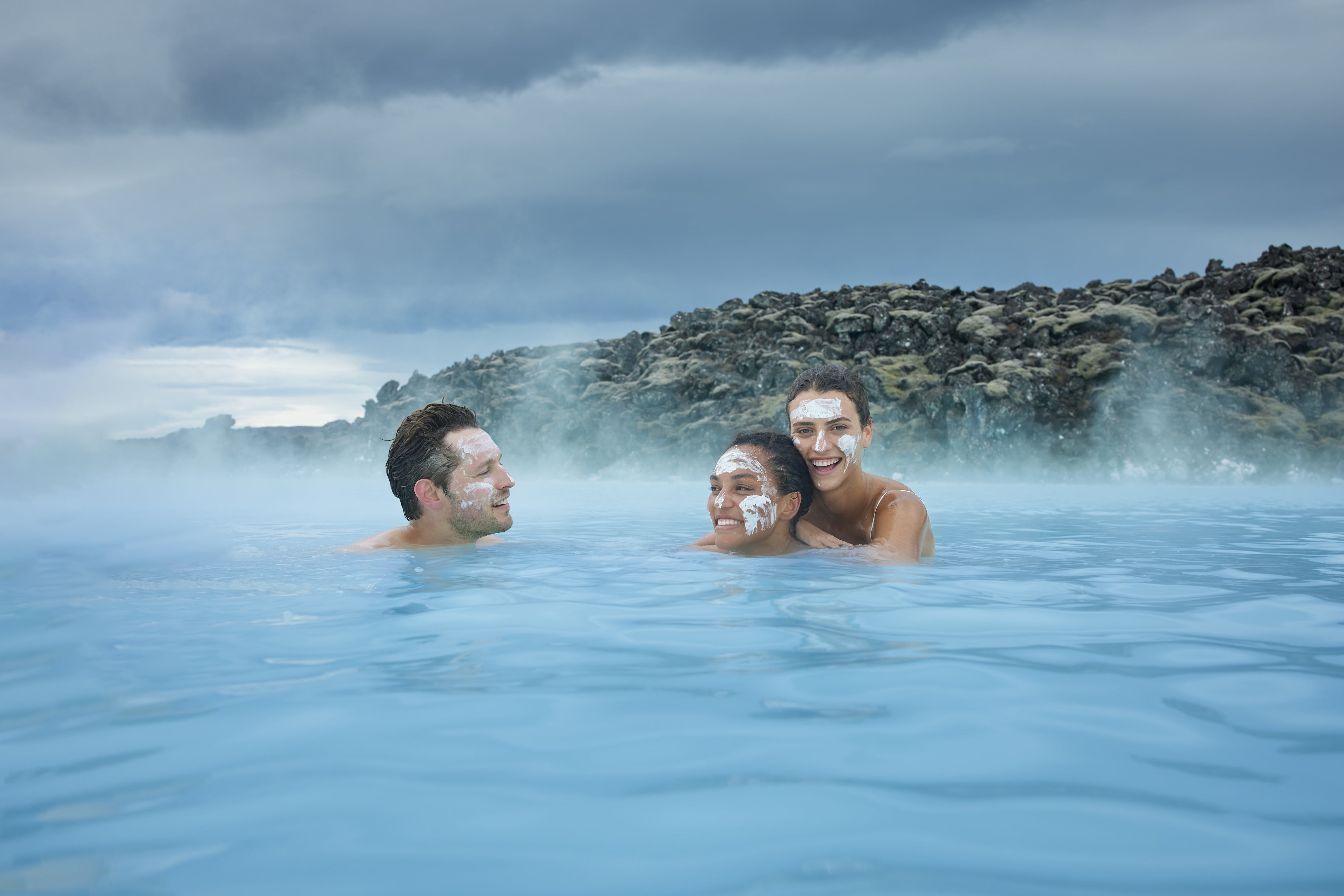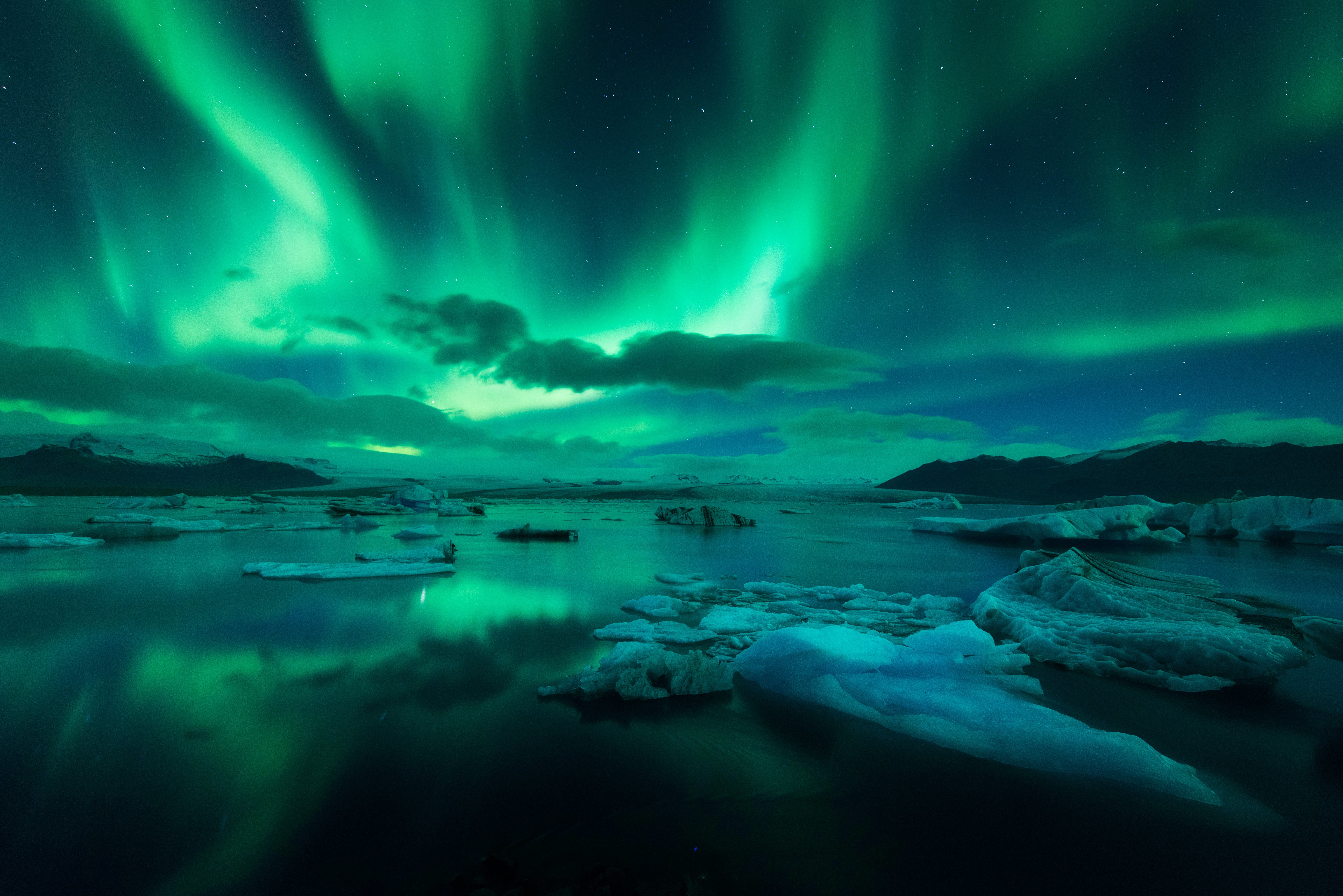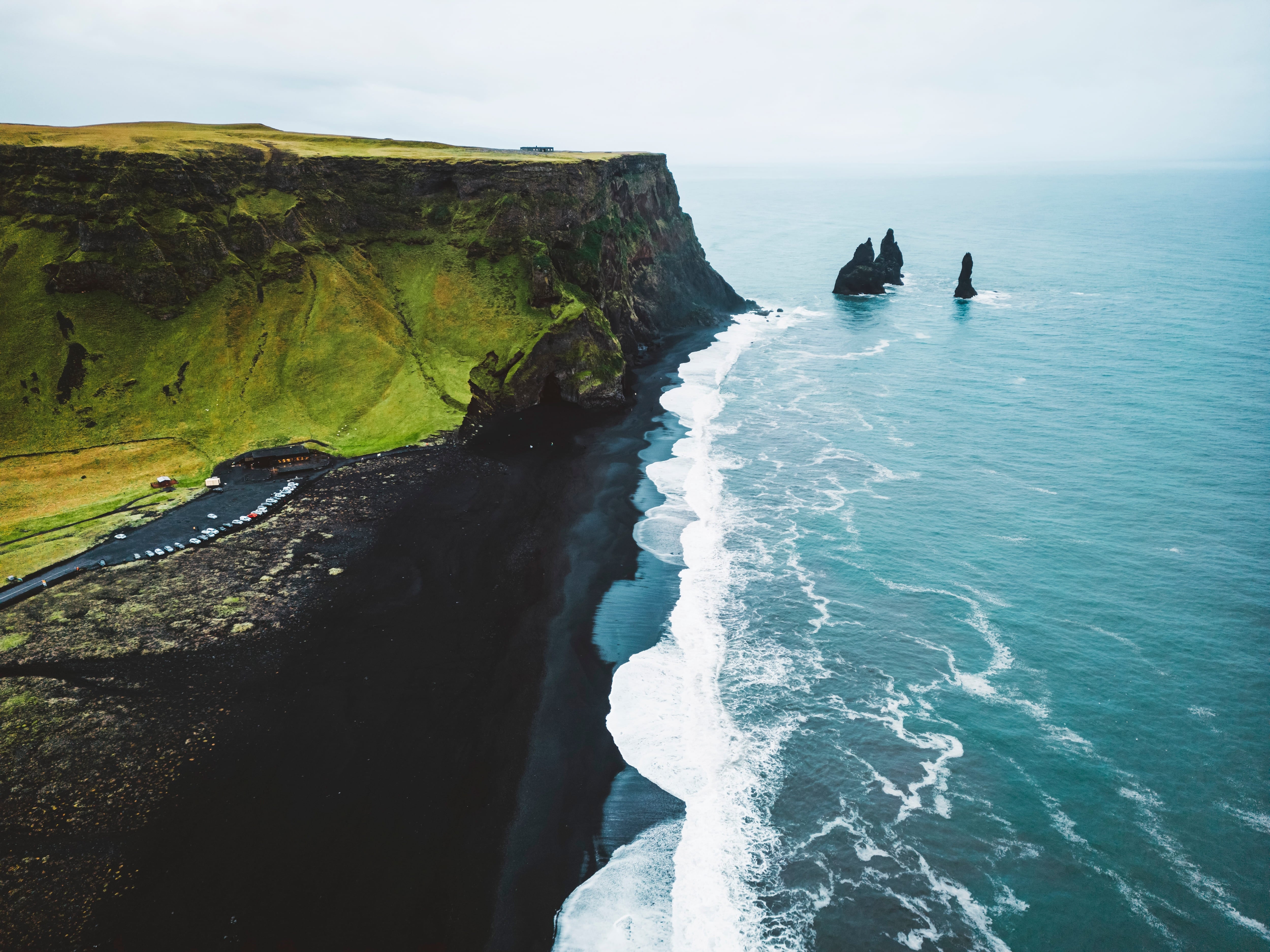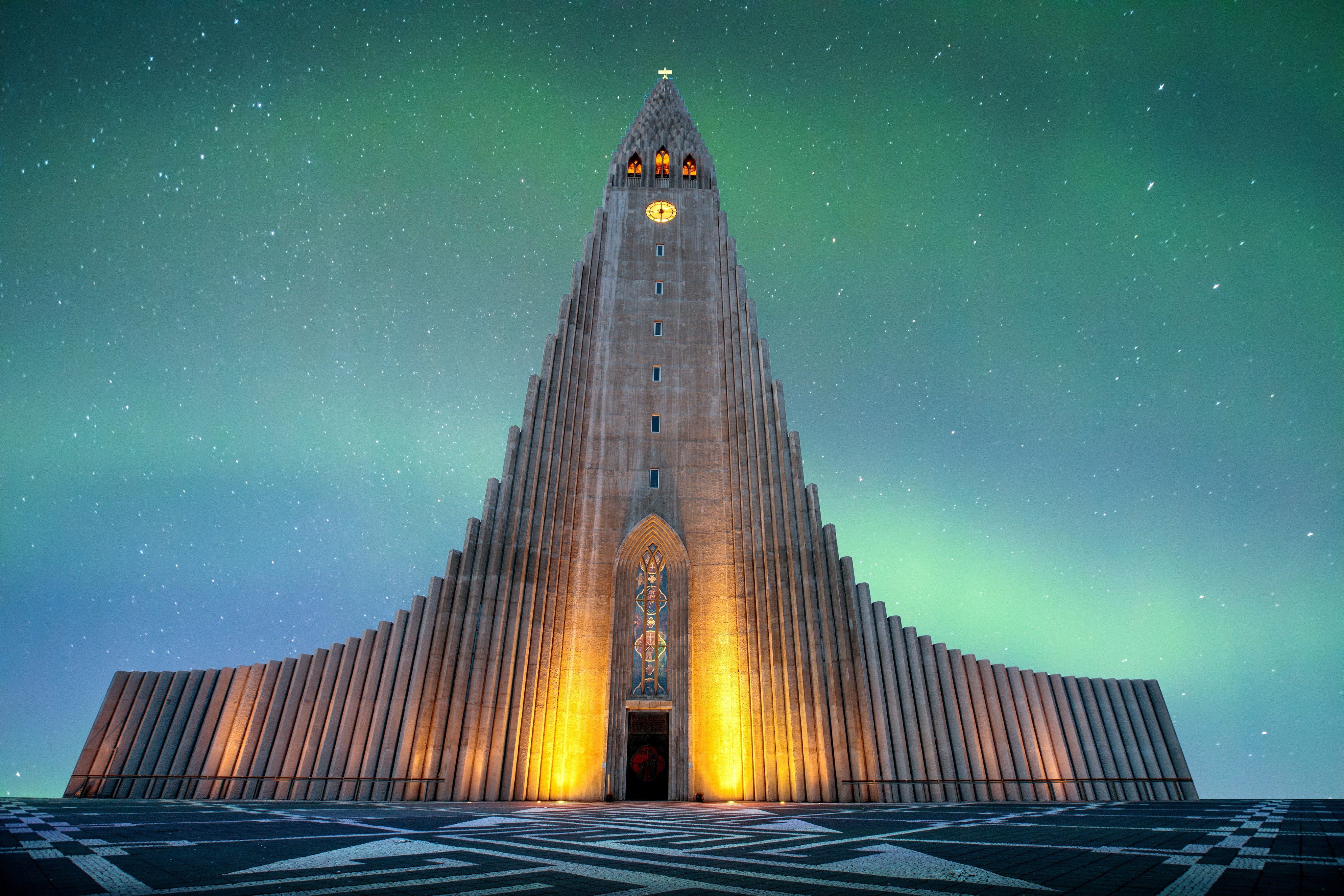Iceland’s long tradition of folk music was celebrated in full force this weekend (1-3 March 2018), as the first night of Reykjavik’s annual Folk Festival got underway. Once again, I was to sit there appreciating each performance, sipping away at cold Einstök as the musicians rolled out one by one to delight with their eclectic range of talents.
- See Also: Music in Iceland.
- Concert Photos taken by Kaspars Bekeris
Held on the first floor of Kex Bar and Hostel, in a wide, red-lit hall, the festival enters its eighth year, drawing an ever-increasing fanbase to its rich tapestry of community, live instrumentation and creative expression.
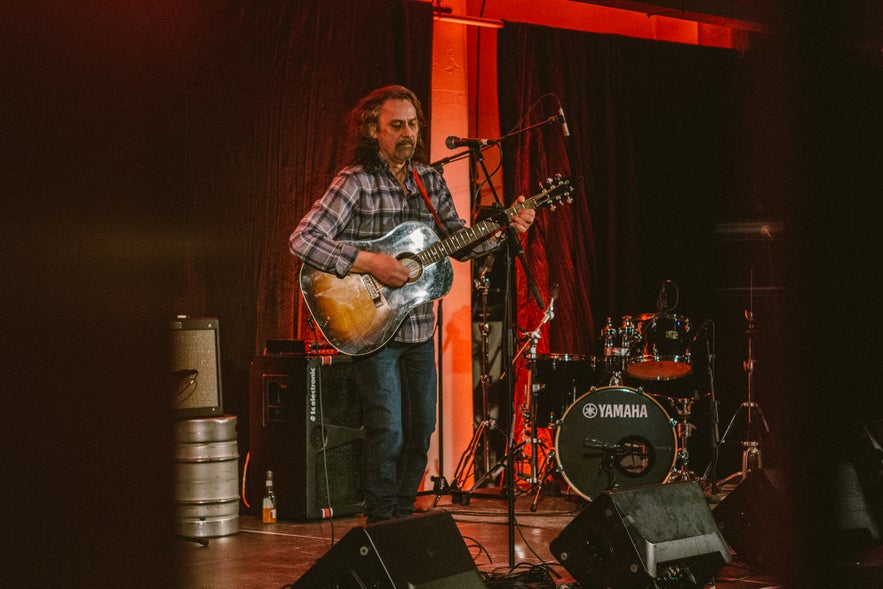
Kex is no stranger to such events, hosting weekly jazz nights, as well as recorded live performances as part of KEXP Radio Seattle. With its dusky interior, wide collection of antiques and rustic patrons, Kex is, in truth, one of the only locations in Reykjavík worthy of a festival like this.
It should be noted that on the hostel’s website, they display a quote “A gentleman is a man who can play the accordion but doesn’t”.
It’s fair to say Kex has dutifully ignored its own advice in this case (—in fact, given the wealth of musical acts that come to play here, it seems to be a monthly habit of the establishment...)
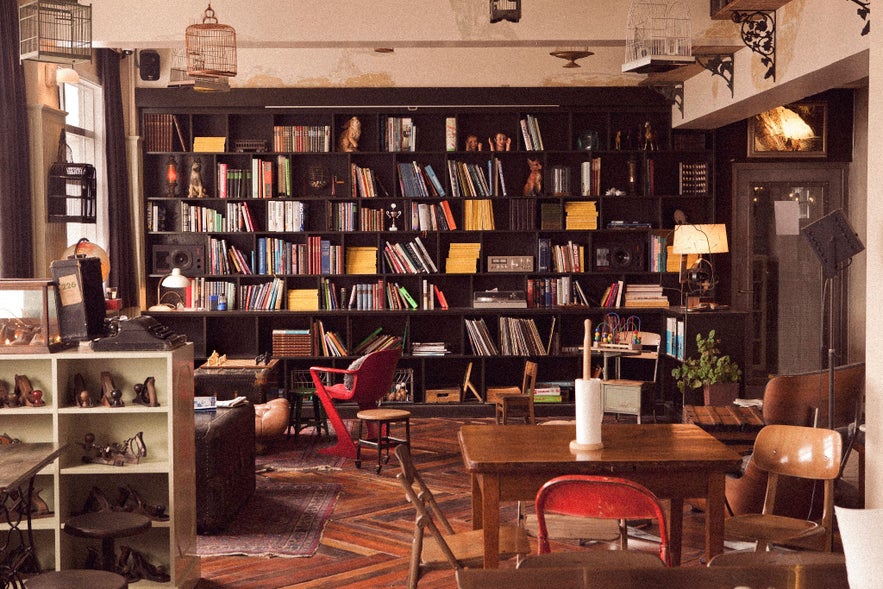
The pleasure of live musical performance lives on in events such as this, and upon entry, I was delighted to find the room buzzing with energy. I also wasn’t surprised. Icelanders are renown music aficionados, both creatively and in consumption, coming from a long tradition of storytelling, myth and inter-connectivity with nature that lends itself beautifully to the art of folk music.
This is particularly true considering folk/indie are now often overlooked—at the very least, vying for competition—in our day and age of electronic snares, frequency modulation and quantization.
It should also be noted that folk music can often be dark, an expression of woe and anguish, managing to hit an emotional soft spot that even the Blues can be too optimistic for.
With Iceland’s notoriously unpredictable weather, freezing temperatures and long, dark winters, it is little wonder that so much collective energy has been put into the craft of Icelandic melody making. When you hear the gentle, yet sweet and haunting tones of artists such as Lára Rúnars and Soffía Björg, you know the emotion is truly coming from somewhere.
- See Also: Icelandic Reggae... Really?
Last year’s festival saw such artists as the fifteen-year-old duo, RuGl, the grizzled Marteinn Sindri and, who can forget the enchanting and timeless Helena Eyjólfs? Whilst these artists shone through with talent and grace, the ambience felt a touch more formal, even ethereal than it did this time around.
Perhaps my memory of the event is a little foggy—it is, after all, held beside a bar— but instead of sitting politely, quietly appreciating the subtleties of folk's musical form, this year saw the audience fully engaged, with acts such as Árni Vil and Teitur Magnússon encouraging enthusiastic singalongs and stomping of the feet.
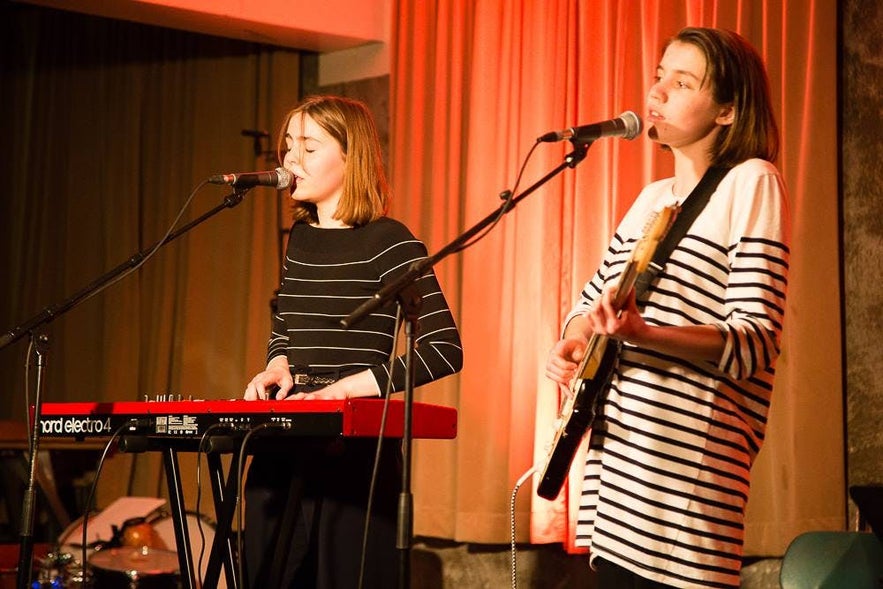
The festival stayed true to showcasing both artists young and old, as well as spanning the genre boundaries of contemporary folk music. In doing so, the church-like ambience of last year felt abandoned. This year, Reykjavik Folk Festival 2018, felt a touch more like a rock concert, complete with a visual stimulus—Mortal Kombat could be seen being played behind the performers—improvised sections and crowd interaction.
- See Also: Kaleo | Way Down We Go.
Thursday 1st March 2018
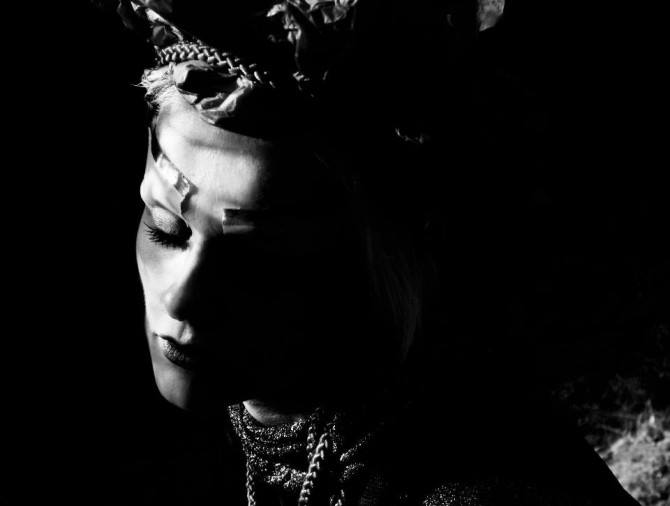
The first night saw the performers Stuntbird, Mads Mouritz, Myrra Rós and Lára Rúnars kick off the festival. With the exception of Mads Mouritz, who hails from Denmark, the festival’s opening acts were as authentically Icelandic as they come, having all originated in the country’s southwest.
Originating from Hafnarfjörður—widely regarded as Iceland’s Viking town—Stuntbird, aka. Svavar Níelsson is a relative newcomer to the Icelandic music scene, introducing a soft blend of folk and indie tunes to the city’s already wide-ranging melodic output. Svavar is only a young musician, but already his passion and skill as a songwriter feels tangible; take the beautifully orchestrated vocal harmonies on his gently-paced "Night after Night (pt.1)", or his cracking electric guitar in "River and Rain".
One can listen to some of his latest music under his compilation “The Demo Tapes”, released onto SoundCloud in 2017.
Following Svavar's opening performance at the festival, Mads Mouritz took to the stage to unleash his almost encyclopedic knowledge of instrumentation onto the audience. Now living in Iceland, Mads Mouritz’ experience with the guitar, percussion, violin, banjo and Indian flute—among other things—has seen the musician play such festivals as Roskilde, in Copenhagen.
He didn’t disappoint at Reykjavik Folk Festival, controlling the atmosphere of the room with onstage performances with Teitur Magnússon and Karl James Pestka.
- See Also: Sigur Rós | 18 Seconds Before Sunrise.
Having played music since she was twenty years old, Myrra Rós is no stranger to the professional music scene; having appeared at Iceland Airwaves in 2012, the singer-songwriter has spent the last six years recording, touring and writing new music, garnering ever more international attention as she does so.
One of my personal favourite Myrra Rós tracks is the below "One Amongst Others", originally released in 2015 on Bandcamp, with a music video directed by Rafal Szczerbowski. With pounding backing drums and vocals to make your arm hairs stand, "One Amongst Others" is a prime example of Myrra Rós' ability as an artist.
Having listened to her father performing in the band Grafík as a child, it wasn't long until Lára Rúnars caught the musical bug, quickly taking inspiration from such artists as Tom Waits and Leonard Cohen. Today, Lára Rúnars is a staple singer-songwriter on the Icelandic music scene, having released five albums since her debut “Standing Still” in 2003.
With each successive album, Lára has reached new heights; this young Reykjavik born singer has gone on to collaborate and perform with such artists as Damien Rice and Amy MacDonald, as well as play shows at Blue Balls Festival in Lucerne, Spot, Eurosonic and The Great Escape.
- See Also: Of Monsters And Men | A Melodic Odyssey.
On stage, Lára is accompanied by Guðni Finnsson on bass, Birkir Rafn Gíslason on guitar, Þorbjörn Sigurðsson on the keyboard and Arnar Þór Gíslason on drums. On the night, all performed magnificently, making a fantastic contribution to the festival's line up. I would recommend listening to the track "Frelsi"—this eighties inspired headbanger is an inspiring journey from beginning to end, and can't help but make me reflect on the best parts of Kim Wilde's career.
Friday 2nd March 2018
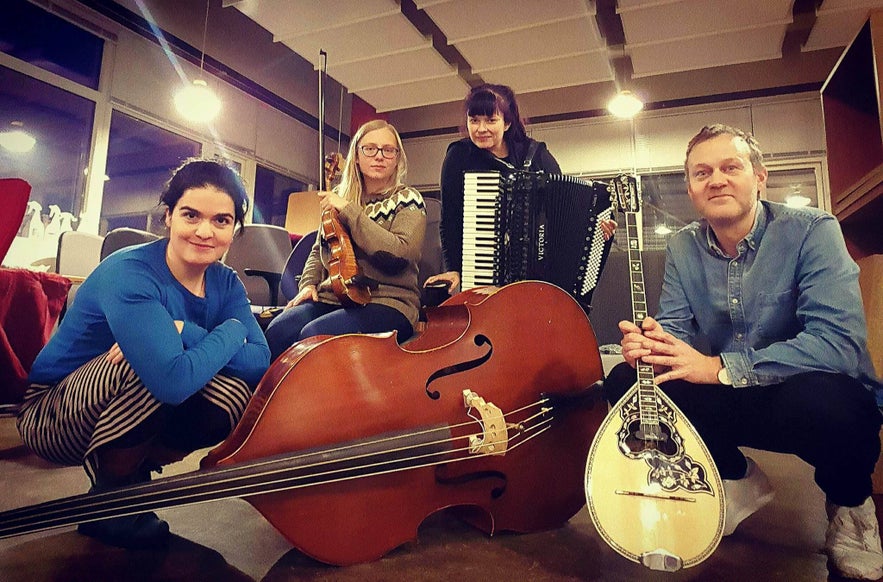
Friday night’s performances came at the hands of Syntagma Rembetiko, Kólga, Halli Reynis and the beloved local musician, Pétur Ben. As we'll look into, each performance brought with it its own unique charming, culminating in what was, arguably, the most melodically advanced night of the festival.
Syntagma Rembetiko opened the evening with their unique blend of Greek orthodox chanting, Middle-Eastern melodies and diverse range of instruments. The band is named after a famous square in Athens, their music acting as a means of bringing the warm Mediterranean culture to these ancient and isolated shores.
Given the seemingly endless winter that the Icelanders have recently endured, their timing at the festival couldn't have been better. Within moments, I was transported to an entirely different realm, one where I wished to trade my forever-diminishing Einstök for a steaming cup of Arabic coffee.
- See Also: The Björk Saga.
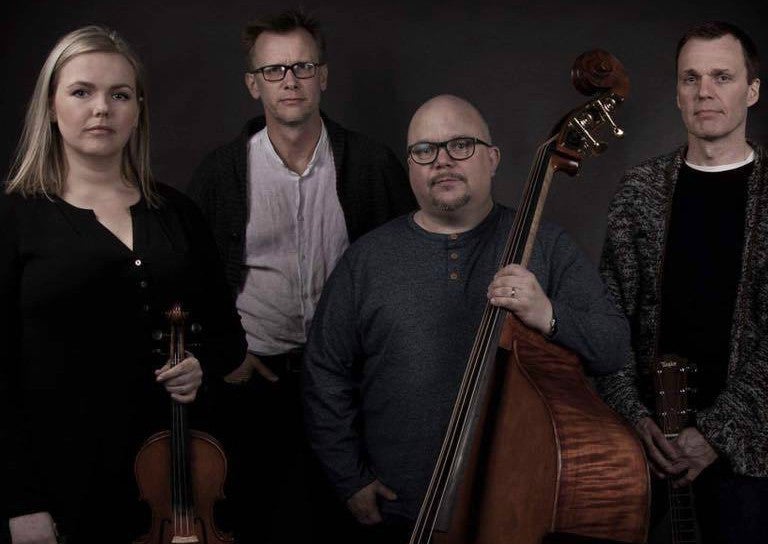
Following Syntagma Rembetiko was Kólga, a four-piece band focusing on performing their own original—and dare I say, enchanting— compositions. The band consists of Kristín Sigurjónsdóttir (violin), Jón Kjartan Ingólfsson (double bass), Magni Friðrik Gunnarsson (guitar) and Helgi Þór Ingason (harmonica), the four of them sharing vocal duties.
They are greatly influenced by the folk music originating from Scotland and Ireland, Scandinavia and Ukraine, adapting said styles with Icelandic vocals and spellbinding harmonies. Their performance at the festival was as expected; a sullen, hypnotic groove where each singular aspect of the instrumentation, be it their harmonies or violin solos, intertwined perfectly. They were, without doubt, one of my favourite acts over the three days.
Alongside Syntagma Rembetiko, Kólga made for a fantastic and exotic contribution to the festival, showing just how broad the folk genre can be. Already, the second evening was shaping up to just as enrapturing as the first.
Halli Reynis is another longtime face on the Icelandic music scene, having recorded eight albums with another planned for a 2018 summer release.
Famed for his sharp composition, strong lyrical performances and experience within the folk scene, Halli can often be seen travelling Iceland playing shows in small towns, drawing on the ambience and experiences of growing up in rural Iceland.
Still, none of the aforementioned musical acts can compete with the fame and experience of Icelandic pop melody-maker, Pétur Ben, an artist whose musical roots go back right to the 1980s.
- See Also: GUSGUS | The Top 5 Tracks.
Pétur first made a name for himself in 2004, simultaneously studying at Reykjavik Academy of Music and writing and arranging Mugison’s album “Mugimama is this Monkeymusic”. As Icelanders are aware, Mugison is the father of the Aldrei Fór ég Suður Music Festival, held in Ísafjörður each year, as well as a staple live and recording act both in Iceland and internationally.
This acclaimed work quickly led to more, and today, Pétur Ben is universally praised for both his soundtracks to the films of Ragnar Bragason (i.e. “Children” (2006), “Parents”, (2007) “Metalhead” (2013), etc.) and his own solo work, particularly the stunning 2012 album, “God's Lonely Man”.
Below is Pétur's full performance at Kex Hostel in 2013, as part of the KEXP Seatle radio station.
As expected, Pétur’s appearance at the Folk Festival was met with much audience approval—in fact, the room seemed spellbound by every solitary note, every poetic line… no surprises there then, given Pétur’s former collaborative efforts with such artists as Emilíana Torrini and Nick Cave.
Saturday 3rd March 2018
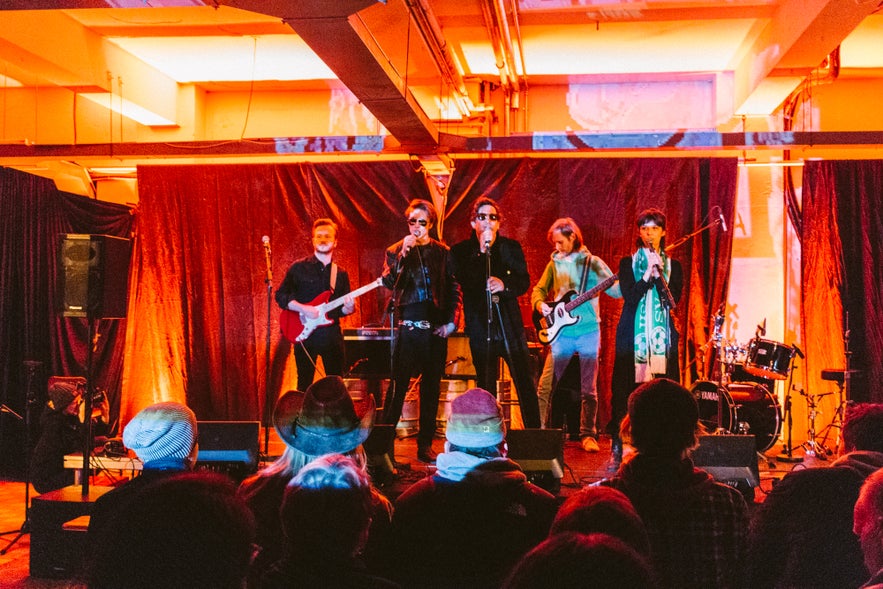
Saturday was Reykjavik Folk Festival’s final night and saw performances from Árni Vil, Elín Ey (stepping in for Soffía Björg who, unfortunately, had to pull out due to sickness), Teitur Magnússon and Bjartmar Guðlaugsson.
The five-piece Árni Vil was the first on stage, comprised of Thoracius Appotite on bass (Just Another Snake Cult), Albert Halldórsson on guitar and Sóley Tomasdóttir, Guðlaugur Halldór Einarsson (Fufanu, Russian Girls) and Arni Vilhjalmsson on vocal duties. Arni Vilhjalmsson has already stuck his teeth into the music scene here with electro-pop group FM Belfast.
- See Also: The Story of Icelandic Cinema.
In my humble opinion, one of the festival highlights was Árni Vil’s new track “The Hitchhiker’s Ride to the Pharmacy”, a stomping and tongue-in-cheek rock n’ roll song that can’t help but shed its good vibe across the room. Lead singer, Arni Vilhjalmsson’s natural charisma and unorthodox style as a frontman compliment the track perfectly, keeping the band's creative output mellow, quirky and captivating.
Árni Vil’s set finished when they were joined on stage by Teitur Magnússon to sing their co-written song “Something Awaits”. With a slow instrumental build, leading to a repeated verse-chorus structure that seemed to epitomize the community spirit celebrated by the Reykjavik Folk Festival. You can see Árni Vil performing at Vinyl on the 15th March and Mengi on the 30th March.
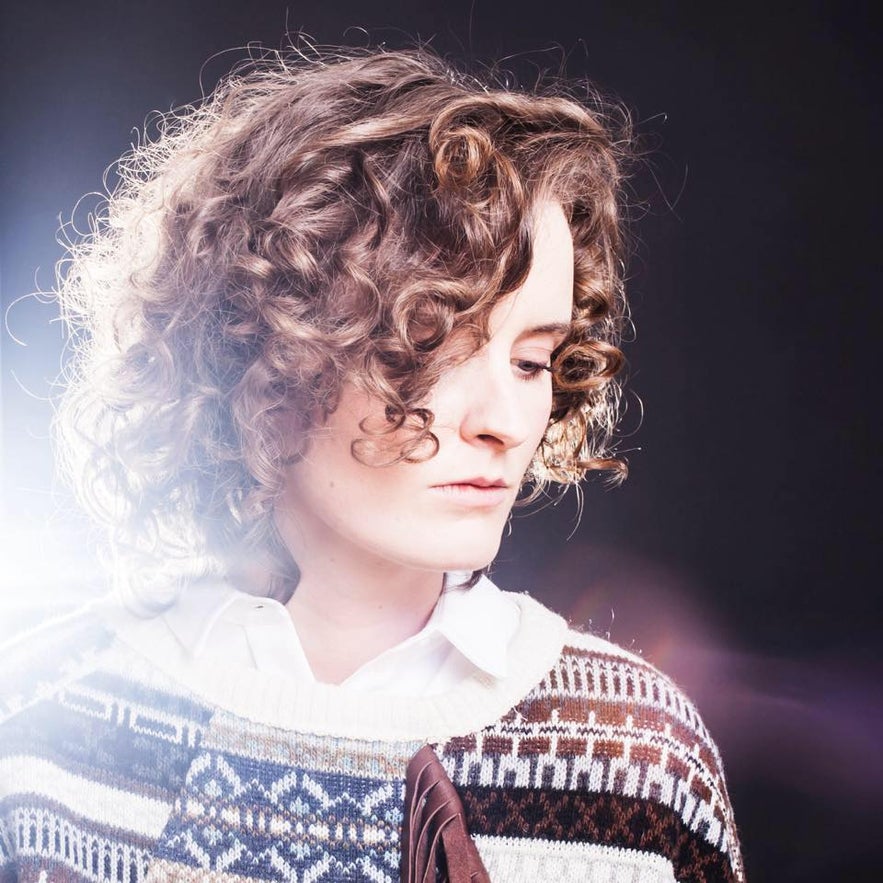
Icelandic singer-songwriter Elín Ey was next to the stage, performing a lively set in place of the originally-billed Soffía Björg. Elín Ey is largely known as a member of the vocal house band, Sísý Ey, alongside DJ Occulus and her two sisters, Elísabet and Sigga.
Her first album "See You In Dreamland" was released in 2008 to favourable reviews, and ever since Elín Ey has been sharing her music across the world. Most recently, Elín Ey has played shows in London, Brighton and New York, even spending some time working as a musician in the Big Apple to a great audience reaction.
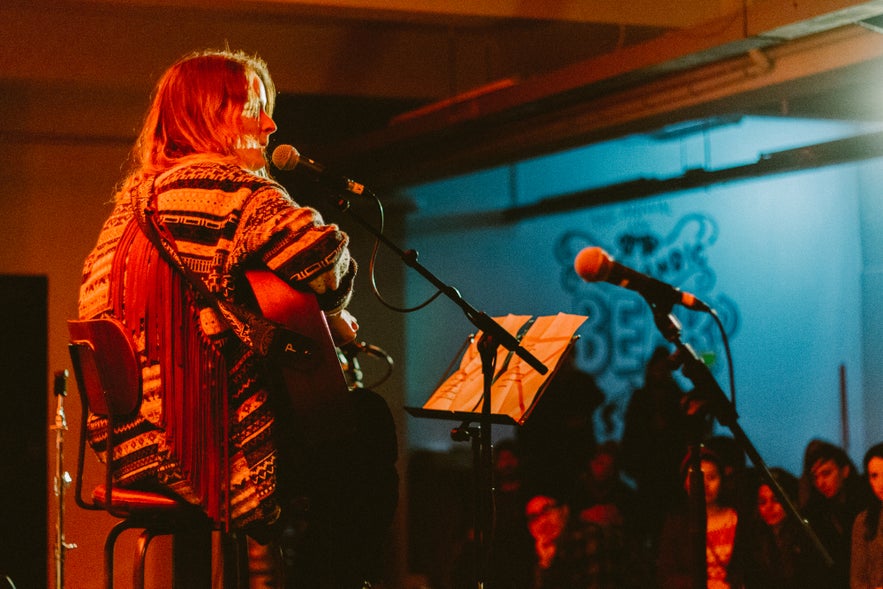
Teitur Magnússon was the third musician to take the stage on Saturday, and there's no real missing him when he does... tall and broad-shouldered, with a mane of red hair and the beard to match, Teitur took to the stage wearing a cowboy hat and aviators—it was, with little doubt, the most folksy outfit at the festival.
Despite appearing somewhere between a Texan Sheriff and Leonard Russell, Teitur has a natural tranquillity on stage, winning over audiences easily with his relaxed charm and easy-going tunes.
Teitur Magnússon first gained his reputation as a music professional with his reggae band, Ojba Rasta, before embarking on a solo career under his own name. Ever since, fans and critics have attempted to categorize his output, ranging from "Psychedelic" to " Dream Pop" to "Alternative Folk"...
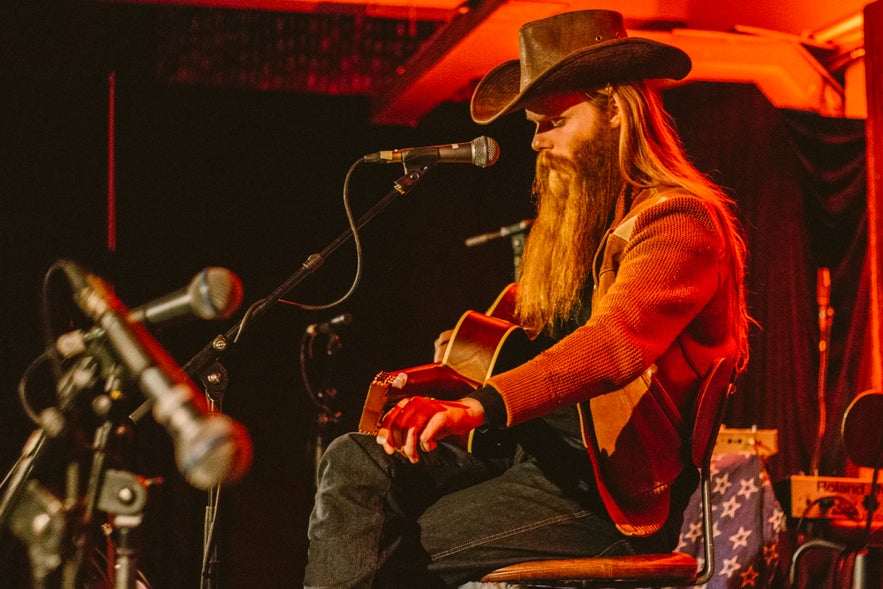
Whatever it is, the sounds coming from Teitur are some of the most exciting on the Icelandic music scene at the moment.
The final performer of the festival was Bjartmar Guðlaugsson, a musician and poet who has been on the Icelandic music scene for over thirty years. Bjartmar was one of the country's most popular musicians during in the 1980s, and since has released over 13 albums, as well as help pen and produce numerous tracks for other artists.
Bjartmar is also an accomplished poet and artist, having lived in Denmark for five years in order to study the discipline. His performance at the festival did not disappoint; in fact, there could have been no better closing than Bjartmar's brilliant set.
All in all, Reykjavik Folk Festival was a resounding success, proving once again that Icelandic folk musicians are among the best in the world. Not only did the festival broaden its reach into dream-pop, alternative rock and lo-fi indie, but it also managed to triumphantly showcase both the experienced and flourishing artists.
